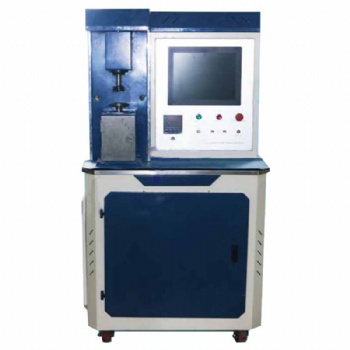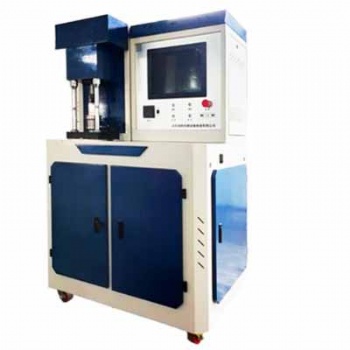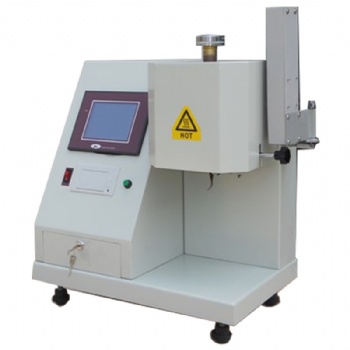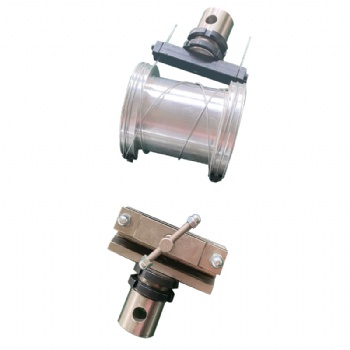News
An Introduce of the JIS Friction Dyeing Firmness Testing Machine
An Introduce of the JIS Friction Dyeing Firmness Testing Machine
Introduction
In the world of textiles, color is not just an aesthetic feature; it plays a significant role in product appeal, brand identity, and customer satisfaction. However, the durability of color on fabrics—known as colorfastness—is equally crucial. One of the primary methods for assessing this durability is through friction dyeing firmness testing. The JIS (Japanese Industrial Standards) friction dyeing firmness testing machine is a key instrument in this evaluation, ensuring that dyed fabrics can withstand the rigors of daily use. In this blog, we will explore the purpose, operation, importance, applications, and advantages of this testing machine.
The Importance of Colorfastness
Before diving into the specifics of the JIS friction dyeing firmness testing machine, it’s essential to understand why colorfastness is critical in textiles:
Aesthetic Longevity: Customers expect their garments to maintain vibrant colors after repeated use and washing. If a product fades or loses color, it may result in dissatisfaction and damage to the brand's reputation.
Brand Integrity: For manufacturers, colorfastness is synonymous with quality. A reputation for producing fading textiles can lead to decreased sales and a tarnished brand image.
Regulatory Compliance: Many industries require compliance with specific colorfastness standards. Meeting these requirements is essential for market access, particularly in regions with stringent regulations.
What is the JIS Friction Dyeing Firmness Testing Machine?
The JIS friction dyeing firmness testing machine is specifically designed to evaluate the colorfastness of dyed textiles when subjected to rubbing or friction. It conforms to JIS L 0849, which details the procedures and standards for testing rubbing fastness.
Key Features of the JIS Testing Machine
Standardized Testing Procedure: The machine follows a standardized approach, ensuring that tests are reproducible and consistent across different samples and conditions.
Adjustable Load: The friction dyeing firmness testing machine allows users to adjust the load applied during testing. This flexibility enables testing under varying conditions that reflect real-world usage.
Rubbing Mechanism: The machine includes a horizontal platform where the test fabric and a rubbing cloth are placed. The mechanism simulates the friction that occurs during everyday wear.
Control Settings: Users can set parameters such as the number of rubs and speed, allowing for customization based on specific testing requirements.
Evaluation Instruments: After testing, the machine often includes tools for evaluating color transfer, such as gray scale assessments or spectrophotometers. These instruments provide quantifiable results that are essential for quality control.
How the JIS Friction Dyeing Firmness Test Works
The testing process is straightforward yet meticulous, ensuring accurate results:
Specimen Preparation: The fabric specimen is prepared according to the standards, ensuring that it has been dyed and finished as per typical production methods.
Placement: The dyed specimen is placed on the horizontal platform of the testing machine. A standard test cloth, typically made of white cotton, is also prepared for rubbing.
Load Application: The user sets the appropriate load and positions the rubbing cloth against the dyed fabric. This load simulates the pressure that would be applied during regular use.
Rubbing Action: The machine then initiates the rubbing action, either automatically or manually, depending on the model. The friction created during this process is what tests the dye's adherence to the fabric.
Measurement: After completing the designated number of rubs, the machine stops. The transfer of color from the test fabric to the rubbing cloth is assessed using gray scale or spectrophotometric methods, providing a numerical value for colorfastness.
Applications of the JIS Friction Dyeing Firmness Testing Machine
The applications of the JIS friction dyeing firmness testing machine are extensive and crucial across various sectors:
Textile Manufacturing: Manufacturers use this testing machine during the production phase to ensure that their dyed fabrics meet required standards before they reach consumers.
Quality Control Laboratories: Testing labs routinely employ the JIS machine to assess colorfastness as part of their quality assurance processes. This helps identify any potential issues before products are released to the market.
Research and Development: In R&D settings, the friction dyeing firmness testing machine is used to evaluate new dye formulations, fabric blends, and finishing techniques. This is vital for developing innovative textiles that meet consumer demands for durability.
Educational Institutions: The machine serves as a teaching tool in textile engineering and fashion design programs, helping students understand the importance of colorfastness and the testing process.
The Benefits of Using the JIS Friction Dyeing Firmness Testing Machine
Accuracy: The standardized procedures and adjustable settings ensure that tests are precise and reliable, leading to valid results.
Time Efficiency: Automated features reduce the time needed for testing, allowing laboratories to process more samples in less time.
Regulatory Compliance: By using the JIS friction dyeing firmness testing machine, manufacturers can confidently demonstrate compliance with industry standards, facilitating market entry and acceptance.
Enhanced Product Quality: Regular testing helps identify weaknesses in dye formulations or application methods, enabling manufacturers to refine their processes and produce higher-quality textiles.
Consumer Trust: Producing textiles that maintain their color over time enhances consumer trust and satisfaction, contributing to brand loyalty.
Challenges in Testing and Considerations
While the JIS friction dyeing firmness testing machine is an invaluable tool, there are challenges and considerations to keep in mind:
Operator Training: Proper training is essential for users to understand the machine's operation and ensure accurate results. Inadequate training can lead to measurement errors.
Calibration: Regular calibration is necessary to maintain accuracy. Neglecting this can result in inconsistent test outcomes, which can compromise product quality.
Environmental Factors: Variables such as humidity and temperature can affect the test results. Laboratories should maintain controlled environments to minimize these influences.
Specification Variations: Different types of fabrics and dyes may require adjustments to testing parameters. Users must be aware of the specifics to achieve valid results.
Conclusion
The JIS friction dyeing firmness testing machine is a critical instrument in the textile industry, ensuring that dyed fabrics meet the high standards of colorfastness required by consumers and regulatory bodies alike. By understanding its features, operation, and importance, manufacturers can leverage this machine to enhance the quality and durability of their products.
In an era where consumer expectations for quality are higher than ever, utilizing reliable testing equipment is not just an option but a necessity. The insights gained from friction dyeing firmness testing contribute to better products, improved market compliance, and increased consumer satisfaction. As the textile industry continues to evolve, the role of testing machines like the JIS friction dyeing firmness testing machine will remain central to maintaining quality and trust in the marketplace.
asphalt mixture uniaxial compression tester, bohme abrasion tester, manhole cover testing machine
Categories
Contact Us
- +86-18615632092
- wtbequipment@hotmail.com
- sophie-tester
- +86-18615632092




 售前客服
售前客服